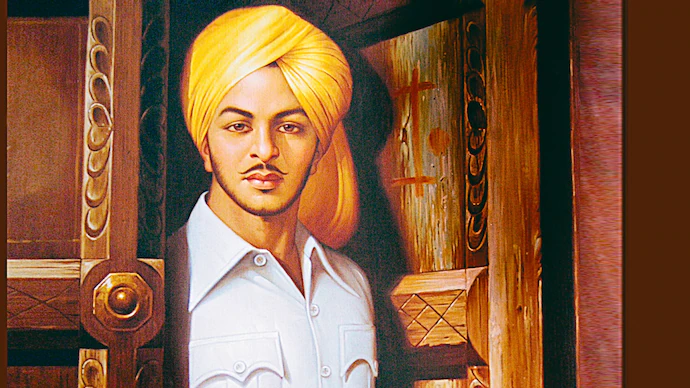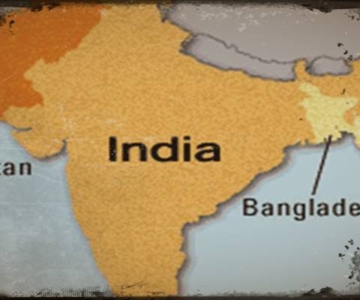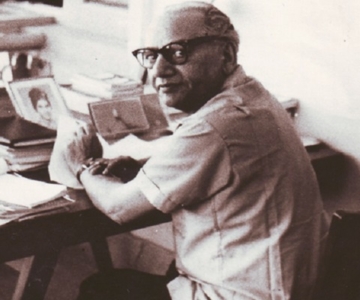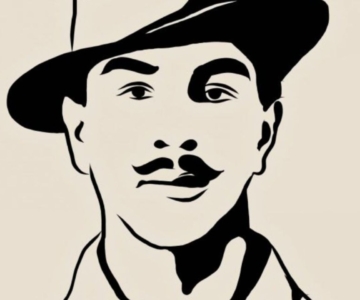Watch Raza Rumi in conversation with historian Irfan Habib (in Delhi) and activist Diep Saeeda (in Lahore) about Bhagat Singh’s legacy and why we need to remember him as a shared hero. “Freedom fighter Bhagat Singh was born in Lyallpur, Punjab, India (now Pakistan), on September 27, 1907, to a Sikh family deeply involved in political activities. Following the footsteps of his father, he chose the path of political defiance against British rule. Bhagat Singh is considered to be one of the most influential revolutionaries of Indian Nationalist Movement. For his courageous demonstrations and bold political views, he was jailed several times. In 1926, Bhagat Singh founded the ‘Naujavan Bharat Sabha (Youth Society of India) and joined the Hindustan Republican Association (later known as Hindustan Socialist Republican Association).
Bhagat Singh started writing provocative articles against the British Government, printing and distributing pamphlets to encourage violent uprising, as a way of overthrowing the tyrant government. Considering his influence on the youth, and his association with the Akali movement, he became a person of interest for the government.
On 30 October 1928, Lala Lajpat Rai led an all-parties procession and marched towards the Lahore railway station to protest against the arrival of the Simon Commission. The police resorted to a brutal lathi charge to control the protesters. The confrontation left Lala Lajpat Rai with severe injuries and he died on November 17, 1928. Bhagat Singh made efforts to avenge his friend Lala Lajpat Rai that got him into further troubles along with the Central Legislative Assembly bombing case. Eventually, Singh and his fellows were tried and sentenced to death. He was executed on March 23, 1931. While his supporters considered him a martyr, Gandhians felt that he was too radical and extremist. Nonetheless, Singh remains a significant, though controversial, figure in India’s history.



